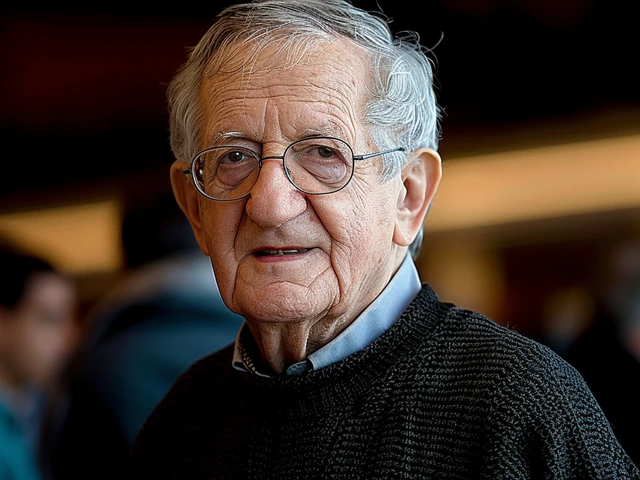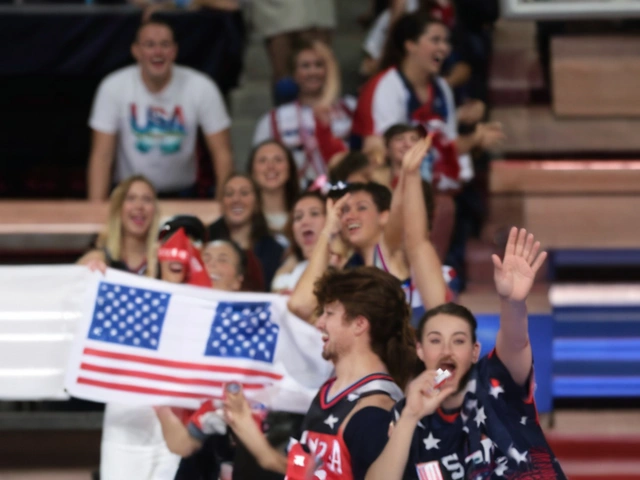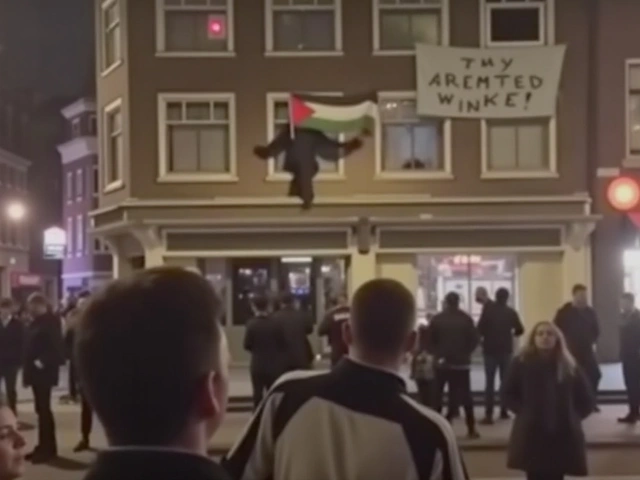Few players walk out of a deal that runs to 2028 and land in Spain within weeks. That’s exactly what Lucas Ribeiro has done. The 26-year-old Brazilian forward signed a one-year contract with Cultural y Deportiva Leonesa as a free agent on September 12, 2025, after a tense breakup with South African champions Mamelodi Sundowns.
The move hinged on a legal play more than a transfer fee. Ribeiro’s lawyers pushed for FIFA to approve his international clearance after Sundowns allegedly blocked multiple exits to Europe and Qatar. With that green light, Leonesa stepped in, betting that a quick, clean registration would outweigh the noise around the dispute.
Why the move happened: a legal fight and a window of opportunity
Ribeiro was tied to Sundowns until 2028, but his camp says the club shut the door on offers that far exceeded his market valuation—listed at about €2.5 million on Transfermarkt. Interest spiked after his strong showing at the FIFA Club World Cup, where he led the line for Sundowns and looked ready for a European move. Fluminense also made a serious push before the Spanish option won out.
To force a path out, Ribeiro hired Dupont-Hissel, a European sports law firm known for high-stakes transfer disputes. The lawyers leaned on a well-cited FIFA precedent involving Lassana Diarra’s clash with Lokomotiv Moscow: when a club restricts a player’s freedom to move without legitimate sporting or contractual grounds, FIFA can grant clearance so the player can work elsewhere while the legal case runs its course.
Here’s how the standoff unfolded, according to people close to the talks:
- Ribeiro told Sundowns he wanted to explore offers after the Club World Cup.
- European and Qatari proposals arrived; his camp claims the club refused to engage.
- Dupont-Hissel filed for provisional registration via FIFA, citing “freedom of movement” concerns.
- FIFA granted clearance, enabling Leonesa to register him on a one-season deal.
This is the crux: provisional registration means the footballer can play while any compensation claim goes to the FIFA Football Tribunal. If the tribunal later rules that Ribeiro breached his contract without just cause, it can order damages. But the new club typically isn’t penalized for signing the player, and the registration stands unless there’s a separate regulatory issue.
Leonesa, for their part, framed the signing as an opportunistic pickup. In a club statement, they highlighted his experience across Brazil, France, Belgium, and South Africa, and confirmed he arrives as a free agent for one season. The message was simple: they found a gap, moved fast, and got it done.
Timing mattered. By mid-September, the European window had shut for standard transfers, but free agents can still be registered if league rules allow. FIFA’s approval removed the key roadblock—the international transfer certificate (ITC) from the previous association—letting Spain process the move. Any fallout now shifts away from the pitch and into tribunal rooms.
What Leonesa get: a direct forward who can change their tempo
Leonesa needed momentum. Four games into their LaLiga 2 campaign, they had one draw and three losses, with the table leaders Racing de Santander next up. The squad lacked a consistent threat between the lines. Ribeiro offers exactly that: a left- or right-sided attacker who can drive at defenders, roll inside to combine, and finish from the edge of the box. He’s comfortable as a second striker too, which gives the coach options when chasing games.
His career path is unusual for a 26-year-old. He learned his trade in Brazil, took the European route via France and Belgium, then exploded onto wider radars with Sundowns from 2023. In South Africa, he thrived in a team that expects to dominate the ball. That’s useful in Spain, where Leonesa often need sharp counters one week and patient buildup the next. He can toggle between both styles, and he doesn’t shy away from defensive pressing, which buys him minutes quickly with a new coach.
Set pieces are a quiet bonus. Ribeiro can hit a heavy dead ball and attack the back post, which helps a side struggling to create from open play. In a tight Segunda División game, one corner or a late cutback decides everything. He gives them an extra way to steal points.
Registration details are straightforward: he signs for one season, occupies a non-EU slot, and is eligible once the league processes FIFA’s clearance. Expect a managed debut—20 to 30 minutes off the bench—before he starts. Conditioning won’t be the issue; chemistry will. Finding patterns with the No. 10 and the overlapping fullback is the priority.
What about the legal shadow? That moves on a parallel track. Sundowns can pursue compensation at the FIFA Football Tribunal, arguing Ribeiro ended his deal without just cause and that acceptable offers were on the table. Ribeiro’s side will counter that the club’s refusal to even consider those bids limited his right to work. The tribunal will look at the contract, the bids, timing, and any internal correspondence. Whatever they decide, Leonesa’s position is insulated: the player is registered, the season rolls on, and any financial ruling—if it comes—lands between the player and his former club.
So here we are: a LaLiga 2 struggler lands a top-end attacker in September, and a South African giant prepares for a legal fight. Football rarely gives clean breaks. But on the pitch, the picture is simple—if Ribeiro hits the ground running, Leonesa’s season looks a lot brighter, very fast.






21 Comments
Ronda Onstad
September 16, 2025 AT 22:15 PMMan, this is one of those rare cases where the system actually worked. Ribeiro didn’t just walk out-he used the rules like a chess grandmaster. Sundowns thought they had him locked in till 2028, but football’s not a prison. FIFA’s precedent with Diarra? Perfect playbook. Leonesa didn’t gamble-they saw an opening and moved like a sniper. This is how modern football should work: talent finds a way, even when clubs try to cage it.
And let’s be real-Leonesa needed this. They’re not some豪门; they’re a club that survives on grit and opportunism. Ribeiro’s got the kind of versatility that turns a 1-0 loss into a 2-1 win. He’s not flashy, but he’s efficient. That’s gold in Segunda.
Also, the fact that he can take set pieces? That’s like finding a hidden upgrade in a video game. One corner, one moment, and suddenly you’re not bottom of the table anymore.
They’re not signing a superstar. They’re signing a guy who knows how to win ugly. And in this league? That’s better than any 10-goal season.
Let’s hope he stays healthy. One hamstring tweak and this whole thing turns into a cautionary tale.
Steven Rodriguez
September 18, 2025 AT 09:08 AMLet me get this straight-a Brazilian forward walks out of a South African club with a 2028 contract, gets FIFA to override the whole thing, and lands in Spain with zero transfer fee? And you people are acting like this is normal?
This isn’t football. This is legal warfare disguised as sport. Sundowns didn’t ‘block’ him-they had a binding contract. Ribeiro’s lawyers didn’t ‘fight for justice’-they exploited a loophole that was meant for abused minors or trafficked athletes, not rich guys who got bored in Pretoria.
And now Leonesa gets to steal a player who owes his former club millions? This is the death of football. Clubs will stop investing in youth. Why develop talent when you can just wait for someone to flip them like a used car?
Next thing you know, we’ll have players signing 1-year deals with ‘escape clauses’ built in. Welcome to the NFL of soccer.
And don’t even get me started on the ‘free agent’ narrative. He’s not free. He’s a fugitive with a passport and a lawyer.
Ashley Hasselman
September 19, 2025 AT 16:57 PMOh wow. Another ‘free agent’ who magically got cleared by FIFA after refusing to play for a club he signed until 2028. Shocking. Not. 😒
Let’s just call it what it is: a rich guy with a fancy law firm bullied a club into submission. And now everyone’s acting like Leonesa pulled off some genius move. Nah. They just got lucky the tribunal hasn’t ruled yet. Wait till the bill comes in-Ribeiro’s gonna be paying for this for years.
Also, ‘he’s a free agent’? Bro. He’s a contract jumper. You don’t get to rebrand betrayal as ‘opportunity.’
Kelly Ellzey
September 20, 2025 AT 15:04 PMOkay but-can we just pause for a second and appreciate how wild it is that a guy from Brazil, played in France, then Belgium, then South Africa, and now Spain? That’s like… five different football cultures in seven years.
He’s not just a player-he’s a walking global story. And honestly? That’s beautiful. Football should be about people finding their place, not about contracts that last longer than most marriages.
Leonesa? They’re not just signing a forward-they’re signing someone who’s been through the fire. He knows how to adapt. He’s not here to be a star. He’s here to survive, to prove himself, to help a team climb out of the gutter.
And yeah, maybe Sundowns got screwed. But if they didn’t even entertain offers? That’s on them. No one owes you loyalty if you’re not offering growth.
Let him play. Let him heal. Let him be the spark they need. Sometimes, the best signings aren’t the ones with the biggest price tags-they’re the ones who’ve been kicked around and still show up.
Also, his set pieces? I’m already imagining the chants. 🙌
jesse pinlac
September 20, 2025 AT 23:51 PMHow delightfully pedestrian. A player with a contract until 2028, a club that allegedly refused to negotiate, and a European law firm wielding FIFA’s ‘freedom of movement’ clause like a Swiss Army knife. How quaint.
One must assume that the club’s refusal to entertain offers was rooted in some unspoken malice-perhaps a desire to maintain competitive balance? Or perhaps, more likely, they were simply protecting their asset from predatory opportunists disguised as ‘freedom fighters.’
Leonesa, a club that barely registers on the European radar, now boasts a ‘top-end attacker’-a phrase so overused it’s become a euphemism for ‘player with a decent goal ratio in a lower-tier league.’
And yet, we are to believe that this is a triumph of justice? How noble. How progressive. How utterly devoid of any understanding of the economic realities that sustain professional football.
The tribunal will rule. The money will be owed. And Ribeiro will be remembered not as a visionary, but as the man who turned football into a legal chess match with no endgame.
Elizabeth Price
September 22, 2025 AT 13:41 PMWait-so the club didn’t even consider offers? That’s not ‘blocking’-that’s incompetence. And now FIFA’s stepping in like a referee who just realized the game’s been rigged since 2023? This is why football is a joke. Every contract is a time bomb now. Every player is a ticking asset. Clubs are terrified to invest in anyone over 23 because they might just… vanish. With lawyers.
And Leonesa? They’re not smart. They’re desperate. And desperate teams sign players who come with legal baggage. That’s not strategy-that’s panic. You don’t fix a 4-game losing streak with a 26-year-old who’s already been through 3 leagues. You fix it with cohesion. With discipline. With a coach who knows how to motivate.
Also, ‘he can hit a heavy dead ball’? So… he’s a set-piece specialist? Then why didn’t Sundowns use him more? Oh right-because they knew he’d leave. They were just holding onto him like a hostage until they got paid.
Everyone’s pretending this is a win. It’s not. It’s a warning.
Aaron Leclaire
September 23, 2025 AT 02:37 AMLeonesa got lucky. That’s it.
Mitch Roberts
September 23, 2025 AT 20:55 PMyo this is actually so cool i’m obsessed
imagine being a guy who’s played in brazil, france, belgium, south africa, and now spain like… what even is your life story??
and now he’s gonna drop in on this struggling team and just… change the vibe? like no pressure or anything 😅
he’s got that ‘been there, done that’ energy-like he’s not trying to prove himself, he’s just here to help. that’s rare.
also set pieces?? bro. if he scores off a corner in his first game, i’m getting a jersey. no cap.
leonesa fans are gonna lose their minds. this is the kind of signing that turns a season around. i hope he stays healthy and just… vibes. no drama. just goals.
also r.i.p. sundowns’ transfer policy. they’re gonna regret this for years.
Mark Venema
September 24, 2025 AT 19:03 PMThe legal precedent invoked here is both valid and necessary. FIFA’s intervention in this case aligns with Article 17 of the Regulations on the Status and Transfer of Players, which permits provisional registration when a player’s right to work is unjustly restricted. Sundowns’ refusal to engage with credible offers-particularly after a high-profile international tournament performance-constitutes a material breach of the player’s contractual rights under international labor norms in sport.
Leonesa’s decision to act swiftly and transparently, registering Ribeiro as a free agent with full documentation, demonstrates responsible club governance. The club is not acquiring a liability; it is acquiring a professional athlete whose contractual dispute is being adjudicated separately.
The notion that this undermines football’s integrity is a red herring. The system worked as designed: a player was granted agency, a club acted ethically, and the process was regulated. The tribunal will resolve compensation. The game continues.
Let us not confuse legal accountability with moral failure.
Gabriel Clark
September 25, 2025 AT 19:46 PMThere’s something quietly beautiful about this story. A Brazilian kid from São Paulo, learning the game on dusty pitches, then crossing oceans-France for discipline, Belgium for structure, South Africa for grit-and now Spain, where he’ll be judged on his feet, not his passport.
He didn’t demand a move. He didn’t throw tantrums. He hired lawyers, followed procedure, and waited. That’s maturity.
And Leonesa? They didn’t overspend. They didn’t chase fame. They saw a man who’d been through the wars and gave him a shot. That’s football at its best-human, humble, and hopeful.
Let him play. Let him score. Let him remind us that the game isn’t just about money. Sometimes, it’s about second chances.
And if he scores from a corner? I’ll be the first to say: I told you so.
Ruben Figueroa
September 27, 2025 AT 03:53 AMOhhhhh so now it’s ‘freedom of movement’ when a player wants out of a contract? 😏
Let me guess-Sundowns were ‘racist’ or ‘exploitative’? 🤡
He got paid. He signed. He played. Now he’s got a fancy law firm and a ‘FIFA loophole’ to escape? Classic.
And Leonesa? Congrats, you just signed a walking lawsuit. 👏
Meanwhile, real clubs who pay their players and honor contracts? They’re getting robbed. This isn’t justice. It’s a free pass for mercenaries.
Also-‘he’s a free agent’? Bro. He’s a contract jumper with a PR team. 😒
Next up: Ronaldo signs a 5-year deal, then says ‘nah, I wanna go to Saudi’ and FIFA says ‘sure, no problem’.
Football is dead. 🕯️
Zara Lawrence
September 29, 2025 AT 02:28 AMOne cannot help but observe the chilling implications of this case. The precedent set by FIFA’s provisional clearance-granted without a full hearing, and under the guise of ‘freedom of movement’-opens the door to systemic exploitation of contractual obligations. This is not a victory for the player; it is a victory for legal arbitrage.
One must ask: if a club can be forced to release a player based on alleged ‘refusal to negotiate,’ what incentive remains for clubs to invest in long-term development? Why draft a youth academy when a player may vanish with the stroke of a lawyer’s pen?
Furthermore, the notion that Leonesa is a ‘smart’ acquisition is laughable. They are not a club with a vision-they are a club with a deadline. They are desperate. And desperation breeds recklessness.
The real tragedy? This will become the norm. And the players? They will be the pawns. The clubs? The victims. And the beautiful game? The casualty.
Jess Bryan
September 29, 2025 AT 23:44 PMThey say FIFA intervened… but who really pulled the strings? 🤔
Think about it-Sundowns are African. Leonesa is Spanish. And suddenly, a Brazilian player gets cleared? Coincidence? Or is this part of a larger pattern? Who benefits from destabilizing African clubs? Who gains from weakening their transfer systems?
Europe’s clubs have been quietly hollowing out African football for years. Now they’re using legal loopholes to steal players under the banner of ‘rights.’
And the media? They call it ‘justice.’
It’s not justice. It’s colonialism with a law degree.
Emily Nguyen
September 30, 2025 AT 01:43 AMLet’s be real-this is exactly how the transfer market is supposed to work. Player with leverage? Good. Club that doesn’t respect the player’s career trajectory? Bad. FIFA stepping in to enforce basic rights? Necessary.
Leonesa didn’t ‘steal’ anyone. They signed a player whose contract was effectively voided by the club’s own inaction. Sundowns didn’t want to let him go-they just didn’t want to pay him what he was worth. That’s not loyalty. That’s greed.
And yeah, he’s a free agent. Because the club refused to honor his right to explore opportunities. That’s not a loophole-that’s the rulebook.
Also, set pieces? That’s a bonus. But the real value? His adaptability. He’s played in five countries. He knows how to read the game. That’s not luck. That’s experience.
Stop pretending this is a scandal. It’s a correction.
Steve Cox
October 1, 2025 AT 20:45 PMSo… the club didn’t want to let him go, so he got FIFA to help him escape? Sounds like a villain origin story.
Meanwhile, Leonesa is acting like they won the lottery. Nah. They just got handed a ticking time bomb wrapped in a jersey.
One day, the tribunal’s gonna say ‘Ribeiro breached contract’ and suddenly Sundowns gets millions… and Leonesa? They’re stuck with a player who can’t be sold because the whole signing’s under review.
And the fans? They’ll be chanting his name now. In six months? They’ll be burning his jersey.
This isn’t a signing. It’s a trap.
Also-why is everyone ignoring that he’s 26? That’s not ‘prime.’ That’s ‘past peak.’
They’re buying a used car with a broken transmission and calling it a Tesla.
Prakash.s Peter
October 2, 2025 AT 13:19 PMWhat a farce. A player with a contract until 2028-seven years-walks out after a single tournament? And you call this ‘freedom’? This is not football. This is a market collapse. Clubs will no longer invest in development. Why? Because any player with a lawyer and a decent Club World Cup performance can vanish overnight. The system is broken. FIFA is not a regulator-it is a facilitator of chaos. And Leonesa? They are not a club. They are a parasite. A legal vulture. This is not progress. This is the end of the sport as we knew it. The contract is sacred. The contract is binding. And now? It is meaningless.
ria ariyani
October 4, 2025 AT 09:54 AMOkay sooooo… Ribeiro just did the ultimate flex 😭😭😭
2028 contract? Nah. FIFA said ‘nope.’ Leonesa said ‘come here.’ Sundowns said ‘but we paid you!’ and Ribeiro said ‘but you didn’t let me live my dream.’
AND NOW HE’S IN SPAIN 😭😭😭
Also he’s gonna score from a corner and the whole stadium will cry and someone will make a TikTok with ‘I’m a free agent’ as the soundtrack and it’ll go viral and Leonesa will get 10 million followers overnight and Sundowns will be crying in a boardroom in Pretoria with their CEO holding a signed contract like it’s a love letter from a ghost 💔
Also I just bought a jersey. No regrets. He’s my new favorite human.
Brian Walko
October 6, 2025 AT 00:14 AMThis is a textbook example of how football’s governance structures should function. A player with a valid contractual dispute, supported by documented evidence of refusal to engage with offers, seeks redress through the proper channels. FIFA, acting in accordance with its own regulations, grants provisional registration to preserve the player’s right to work. The club, in turn, acts responsibly by completing registration within league parameters.
The narrative that this is a ‘loophole’ or a ‘betrayal’ misunderstands the nature of professional contracts in sport. A contract is not a prison sentence. It is a mutual agreement, and when one party fails to uphold its obligations-particularly by denying the player reasonable opportunities for professional advancement-the balance tips.
Leonesa did not exploit a flaw. They honored a system designed to protect athletes from institutional abuse. This is not a scandal. It is a success.
maggie barnes
October 7, 2025 AT 01:49 AMso leonesa just stole a guy who signed until 2028?? like… what??
and now everyone’s acting like it’s cool? no. this is a disaster. if this is allowed then no club will ever sign a player for more than 2 years. why? because they know someone’s gonna lawyer their way out.
also… ‘he’s a free agent’? no he’s not. he’s a contract breaker. you don’t get to rebrand betrayal as ‘opportunity’.
and sundowns? they’re gonna be screwed. they spent money on him, he got better, now they get nothing? this is why african clubs don’t develop talent anymore. because europe just steals it.
also i bet ribeiro’s lawyer got paid more than sundowns’ entire squad. 🤡
Lewis Hardy
October 8, 2025 AT 07:09 AMI don’t know much about football contracts, but I do know this: if a player gives his all on the pitch, and the club won’t even let him explore better opportunities… that’s not fair. Not even a little.
Leonesa didn’t buy a player. They gave someone a second shot. And honestly? That’s what this sport needs more of-people who believe in redemption, not just resale value.
He’s not just a forward. He’s a guy who’s been through a lot. And now he gets to play where the game’s alive again.
Let him score. Let him breathe. Let him just… be.
And if he doesn’t hit the ground running? That’s okay too. Sometimes the best stories aren’t about winning right away. They’re about showing up when no one expected you to.
Kelly Ellzey
October 8, 2025 AT 14:39 PMAlso… can we just talk about how he’s 26? That’s not old. That’s the sweet spot. You’ve got the experience, but still got the legs. He’s not a kid. He’s not a veteran. He’s the guy who knows how to turn a 0-0 into a 2-0 without needing a highlight reel.
Leonesa didn’t get lucky. They got smart.
And Sundowns? They got complacent.
Football’s not about contracts. It’s about people. And sometimes… people need to move on.
Let him play.